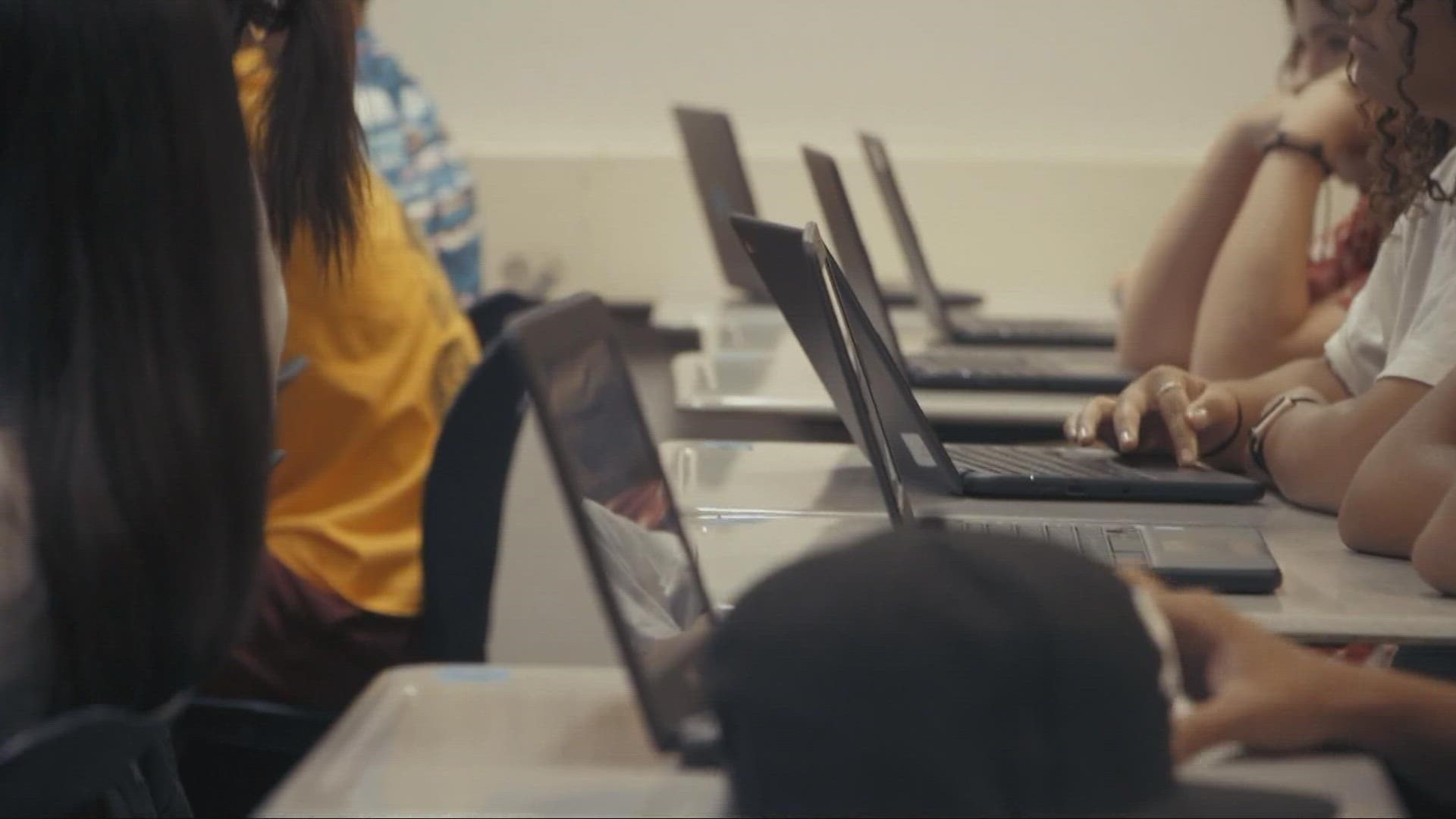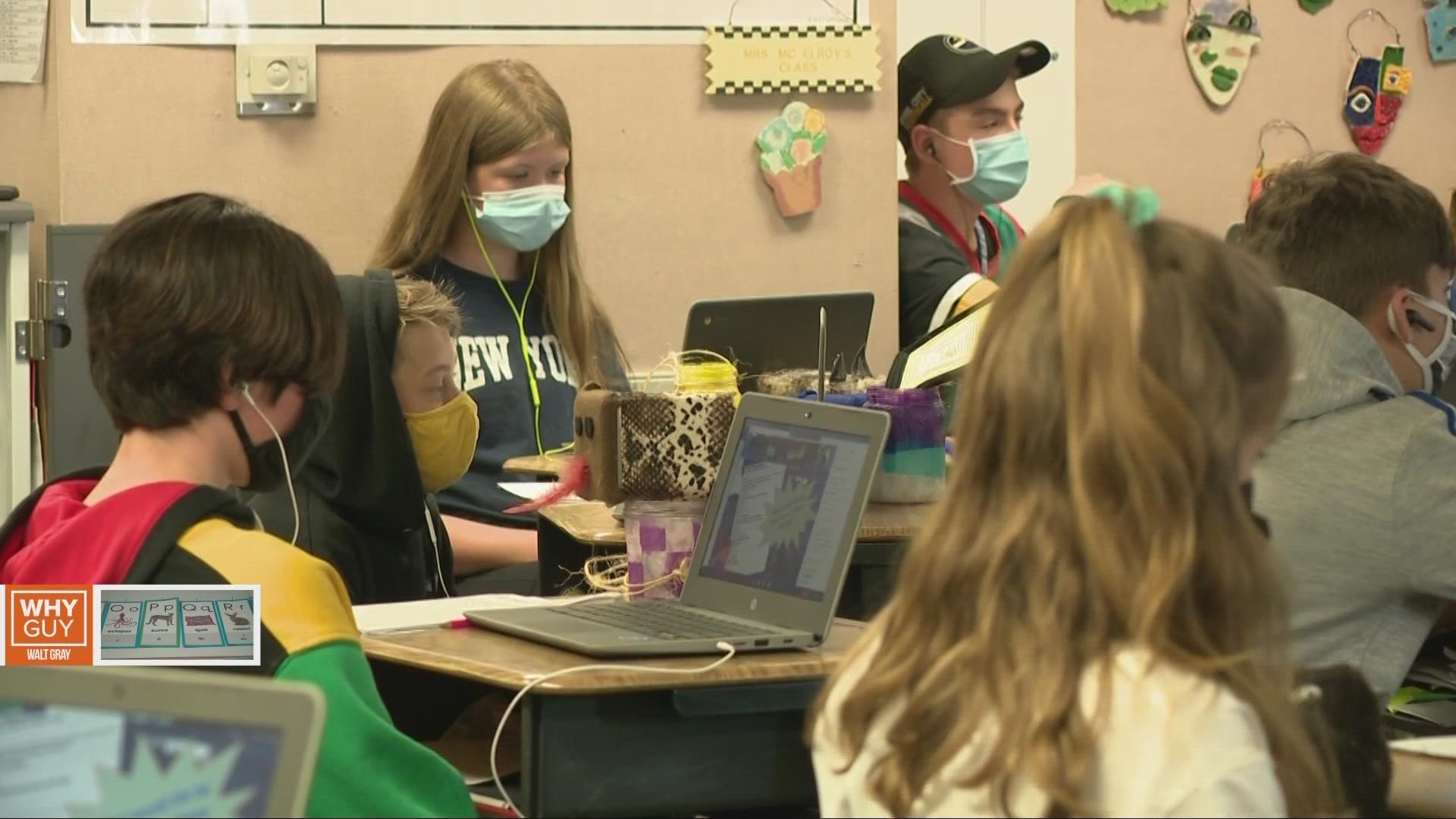SACRAMENTO, Calif. — The country is facing a catastrophic teacher shortage. Nationally, there are more than 280,000 fewer public school teachers now than at the start of the COVID-19 pandemic, according to the Bureau of Labor Statistics.
The California School Boards Association told ABC10 that the state needs roughly 100,000 teachers to provide high-quality education for the state’s students.
More states, California included, continue to ease requirements for teachers to enter the classroom.
Diana Lambert, the senior education reporter at EdSource — an independent non-profit organization that focuses on education in California — explains the bigger picture.
"Well, there's definitely a teacher shortage there's been a teacher shortage in California for years," said Lambert. "It has really impacted science, math, special education, and often, you know, English learners, mostly in the past. But now it's so bad in some districts that it just really goes across the board, English, social studies, all different topics."
She went on to explain things got worse because of the pandemic.
So what areas in California are being hit the worst?
"Rural areas are definitely the hardest hit," Lambert said. "For example, Konocti Unified up in Lake County has about 50% of its teachers working on an emergency credential who aren't fully prepared to teach the courses they're teaching. Last year, they started the year short 12 teachers, even with those 50% of the teachers, underprepared. So that's because when the rural areas are hard, your pool of teachers, people who are qualified to be teachers is small. It's hard to recruit people to that place. What they have done, though, and the really interesting thing, I think, is that they've turned to Montana. So they go to Montana, and they go to teacher fairs in Montana, trying to attract teachers from that state here. The reason being this, Montana there aren't very many jobs for teachers in Montana. They figured that like Lake County similar, it's rural it has a lot of outdoor activities, so they try to attract those teachers there and a good portion of their teachers are from Montana."
Why are teachers so hard to hire or retain right now?
An official at Roseville City— says it is also now experiencing the pressures of smaller candidate pools.
Two teachers at Roseville Unified told ABC10 it wasn’t until recently that they felt they didn't have to worry about living paycheck to paycheck. Adding they feel teacher pay is one of the big reasons why others are not getting into the profession.
Meet the two teachers we talked to and read their experiences.
- Dave Wallace, a freshman English teacher

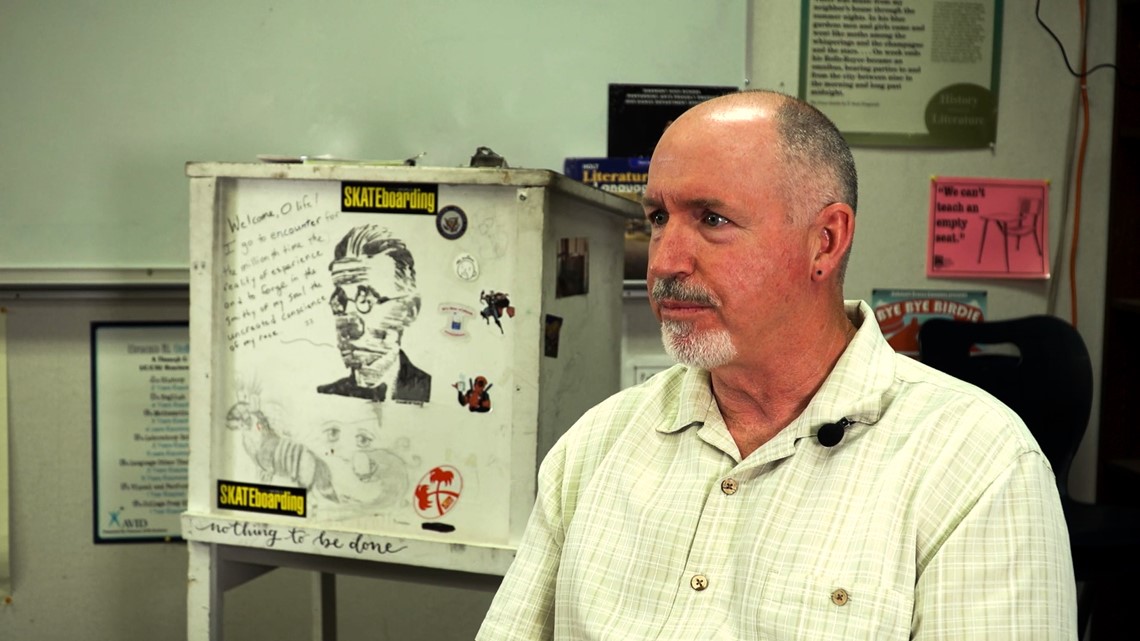
- Kim Carroll, an AP Psychology teacher

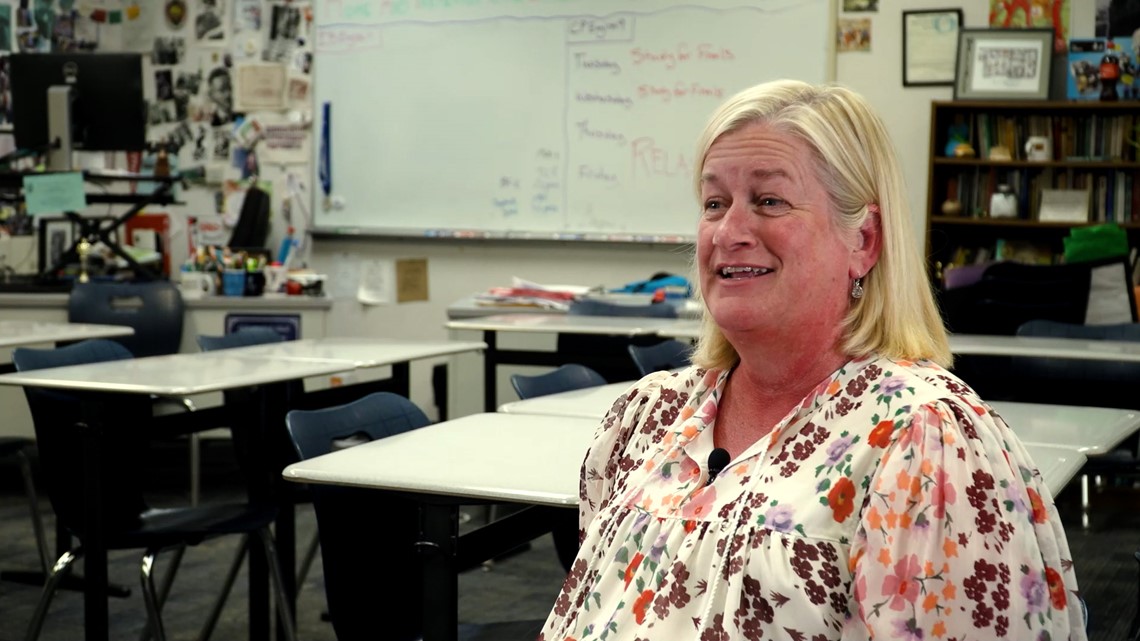
Why did you become a teacher?
"It was the one profession that I swore I was never going to do," said Wallace. "Both of my parents were teachers and all my aunts and uncles were teachers. Everyone assumed I was going to be a teacher. I said, No, I'm not going to do it."
"Both my parents were teachers," said Carroll. "My dad taught at Sac City College, my mom taught first grade. So I saw both ends of the spectrum growing up. So I was not going to teach that was not going to happen. I saw how hard they worked."
Living paycheck to paycheck
"You don't make a lot of money," Carroll said. "The salaries are public. It's not a secret...I started in Sac City Unified teaching at like $22,000 a year, like new teachers were not paid well at all...I taught summer school for seven weeks, I made $3,000. I thought I was so rich. I taught from eight to 12 and made three grand in seven weeks. And yeah, then waited tables at night."
"When I started teaching, it was, it was really rough and getting the first paychecks and hardly anything coming home and finding out how much goes to the pension plan," said Wallace. "Having teachers who are veterans coming in saying you got to start your, your 403 B, now, your tax shelter, you've got to start that now. Because you have to build it up for retirement, because the retirements not going to be enough and I have no extra money, I've nothing I can put in there."
History of teacher pay

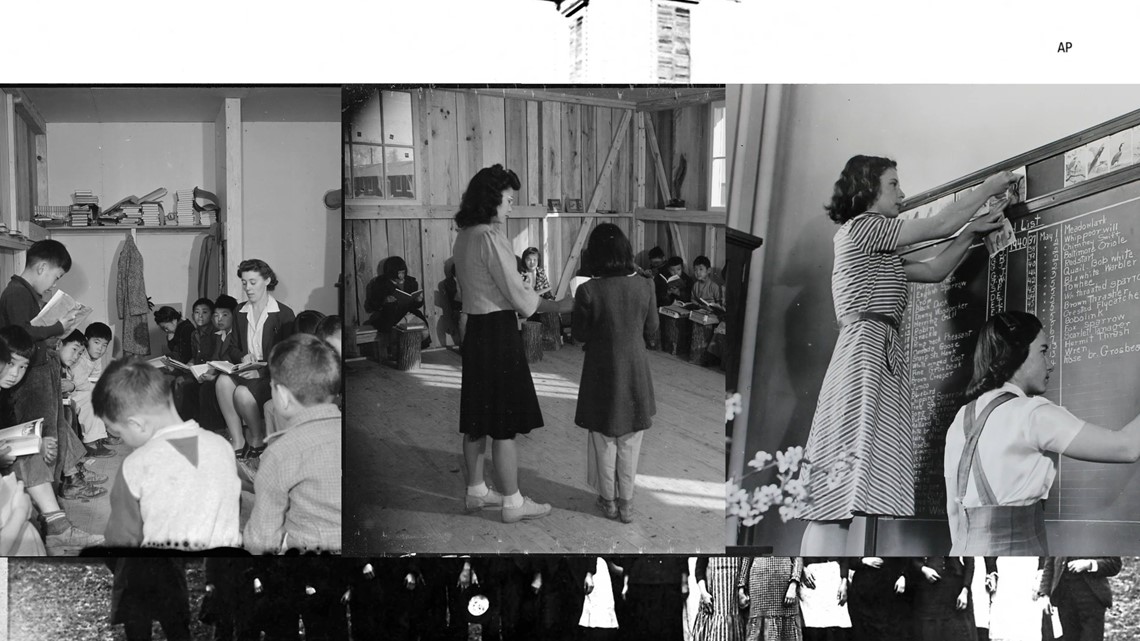
Let’s hit the history books for a minute to help talk about teacher pay.
Up until the mid-1800s, teachers were almost entirely men. As the country’s modern public school system was born more women also began to teach.
By the 1880s, women made up a majority— 63% —of all the country’s teachers.
The gender divide grew.
The most recent federal data shows that of the country’s public school teachers, 75% are women, and 25% are men.
The California School Boards Association’s chief information officer explains that this is a factor regarding teacher pay.
Meet Troy Flint, chief information officer, California School Boards Association.

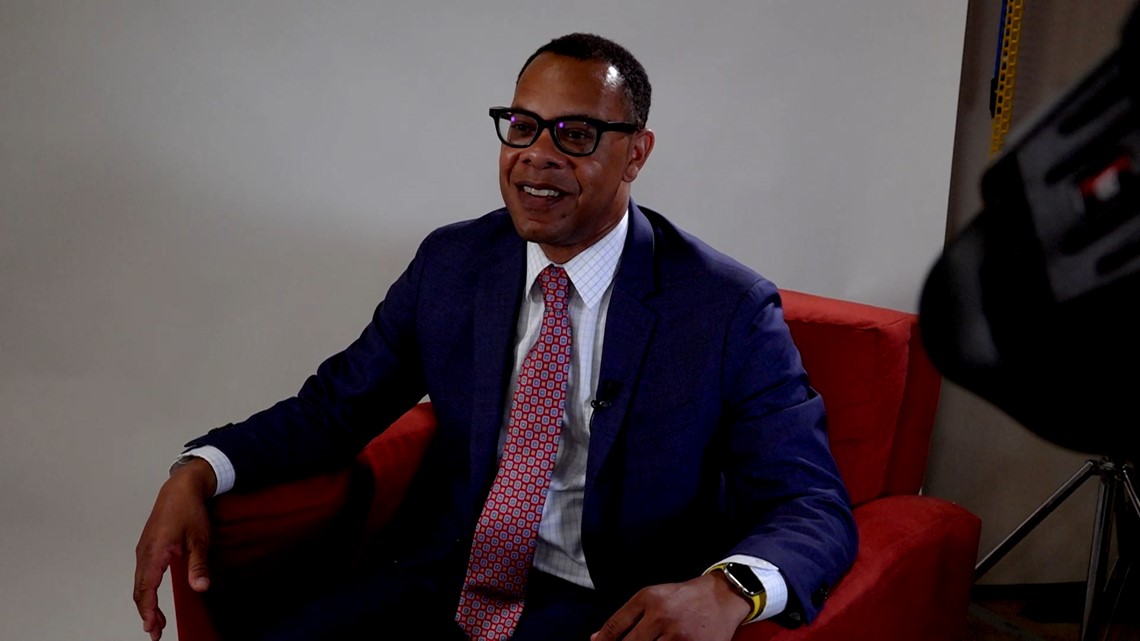
"I think there are a number of factors, some of them are historical," said Flint. "If you want to go back several decades, teaching was traditionally considered women's work. I think because of that teachers have not been compensated properly or haven't been given the respect that a position of such importance deserves. I think we see that still persisting to this day. More recently, we've seen some economic factors, particularly if you look at the Great Recession. During that period from 2008 to 2012, when school budgets are being slashed, roughly 20% in California, school districts were forced to do a lot of layoffs to do programmatic reductions, to cut back on services that made the teaching profession a lot less attractive. The conditions were more difficult for teachers, you had aspiring teachers or people who were considering the field looking at all those layoffs and saying, why would I want to go into that industry? Then you just also had the continuing factor of compensation. Some teachers had to give back salary. It was a very trying period, I think that scared a lot of people away from the education field."
"You know, there are a lot of people who say, well, teachers have summers off, and they've got all this extra time," said Wallace. "But the reality is, especially when you're starting, you know, you're taking classes constantly during summer because your salary is going to be based partly on how many units you have."
"You know, we get excited about a 2% raise and, you know, 50 something now and I'm like, really 2%?" said Carroll. "You know, mind you, we also get health care. We have great health care benefits but salary-wise, no, we're still behind...I don't think you should be in your 50s to 56 before that happens. But that's part of this profession."
What is the average salary in California for a teacher now?

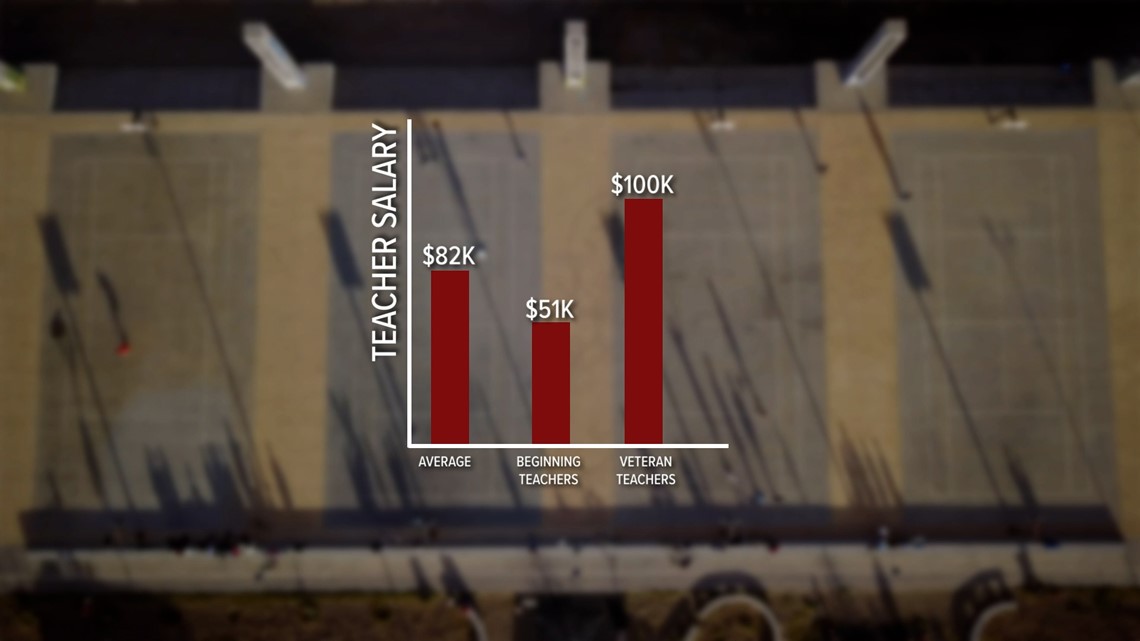
"Well, the average salary in California, and we're talking average is $82,000 a year," said Lambert. "Beginning teachers are averaging about $51,000 a year and veteran teacher earns around $100,000 a year. Whether it's enough depends a lot on where you live. You know how expensive housing is where you live? Some districts don't pay $51 either and they're in the 40s right. It's really difficult for them, and they're paying off their student loans, etc at that time. So that's really what I hear the most of that pay isn't high enough, and we should in that should be moved up in that first step of the salary schedule."
Be a part of the conversation
If you are a current or retired teacher, let us know what you think about teachers' pay and how the landscape of teaching has changed over the years. Reach out to the team at Tothepoint@abc10.com
ABC10: Watch, Download, Read

